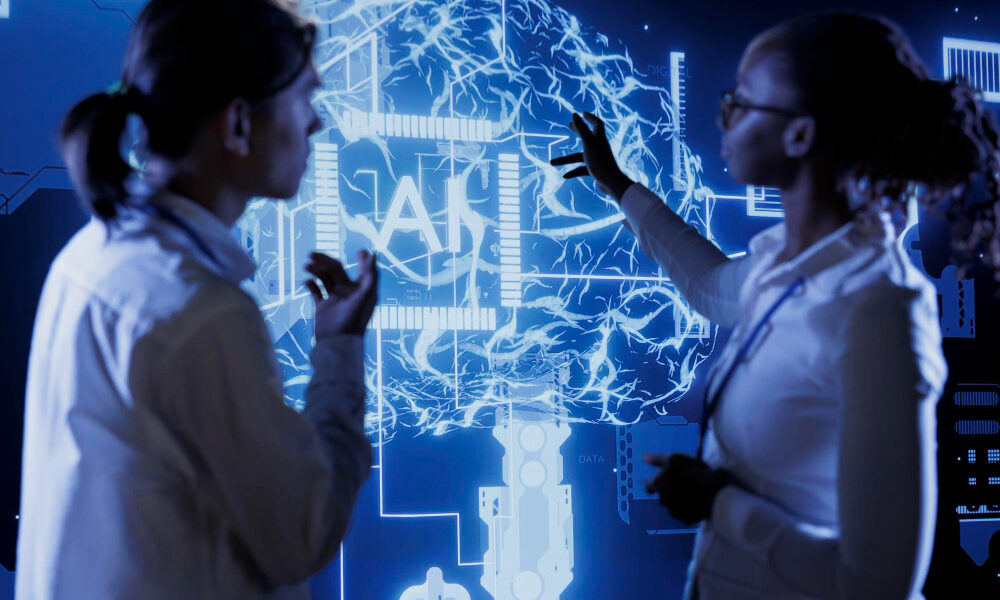The Impact of AI on Today's Work Environment

Artificial intelligence (AI) is rapidly reshaping the landscape of modern businesses and transforming how employees approach their work. From automation to sophisticated data analytics, AI has become a pivotal force driving efficiency and innovation across diverse industries. Let’s delve into the ways AI is revolutionizing and benefiting workplaces worldwide.
1. Automating Operations for Greater Efficiency
AI’s most significant impact lies in automation, where AI-powered systems excel in performing repetitive tasks with unparalleled speed and accuracy. This capability not only enhances operational efficiency but also allows employees to redirect their focus toward more complex and creative endeavors. For instance, in manufacturing, AI-driven robots can assemble products swiftly and consistently, leading to heightened productivity and reduced costs.
2. Empowering Informed Decision-Making
AI algorithms are adept at analyzing massive volumes of data in real-time, offering invaluable insights that facilitate strategic decision-making. Industries such as finance and marketing leverage AI-powered analytics to predict market trends, understand customer behavior, and identify investment opportunities with unprecedented precision. This data-driven approach enables businesses to make agile decisions, gaining a competitive edge in their respective markets.
3. Personalizing Customer Interactions
AI-driven chatbots and virtual assistants have revolutionized customer service by delivering personalized interactions around the clock. These systems can comprehend and respond to customer inquiries, recommend products based on individual preferences, and autonomously handle transactions. By enhancing customer satisfaction and engagement, businesses cultivate stronger relationships and bolster retention rates.
4. Fostering Workforce Upskilling
Contrary to concerns about job displacement, AI is playing a pivotal role in upskilling the workforce. Employees are increasingly learning to collaborate with AI tools, harnessing their capabilities to perform tasks more efficiently and effectively. Companies are investing in training programs that empower employees to leverage AI technologies, enabling them to assume more strategic roles and contribute significantly to organizational objectives.
5. Enhancing Safety and Risk Management
AI-powered systems contribute to workplace safety by proactively identifying potential hazards and predicting risks before they escalate. In sectors like construction and mining, AI algorithms analyze data from sensors and IoT devices to detect anomalies in equipment performance or environmental conditions. This proactive approach not only prevents accidents but also ensures compliance with safety regulations, ultimately saving lives and reducing insurance costs.
6. Streamlining Recruitment and HR Processes
AI is streamlining recruitment processes by automating repetitive tasks such as resume screening and candidate sourcing. AI algorithms efficiently analyze resumes, evaluate candidates’ skills against job requirements, and even conduct initial interviews via chatbots. This streamlined approach not only saves time for HR professionals but also ensures fair and objective evaluations throughout the hiring process. AI in recruitment streamlines candidate sourcing and evaluation processes, enhancing efficiency and objectivity in hiring practices.
7. Facilitating Remote Collaboration
The advent of AI has been pivotal in facilitating seamless collaboration among remote teams, particularly accelerated by the COVID-19 pandemic. AI-powered project management tools, communication platforms, and virtual meeting assistants enable teams to collaborate effectively across various time zones and geographical locations. This flexibility not only boosts productivity but also enhances work-life balance for employees.
Conclusion
In conclusion, AI is profoundly transforming the modern workplace by driving efficiency, facilitating data-driven decision-making, personalizing customer interactions, upskilling the workforce, improving safety protocols, streamlining HR operations, and fostering remote collaboration. As AI technology continues to evolve, its influence on workplaces is poised to expand further, driving innovation and reshaping industries globally. Embracing AI responsibly and ethically will be crucial in maximizing its potential benefits for businesses, employees, and society as a whole.




